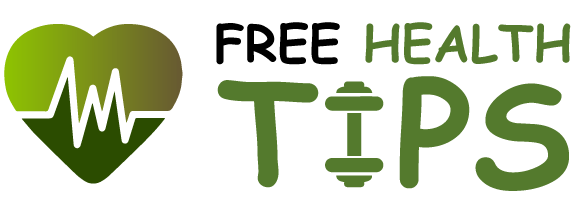Choosing the right pharmacy goes beyond just finding a place to fill your prescriptions. It’s about selecting a healthcare partner that can support your wellness journey, offer convenience, and provide personalized care. With numerous options available, from big chain pharmacies to local independents, making this choice can sometimes feel overwhelming.
However, by considering a few key factors, you can ensure that your pharmacy not only meets but exceeds your healthcare needs.
A good pharmacy can make a significant difference in your health management regime. It’s not just a stopover for medication; it’s a resource for medical advice, support, and even preventive care solutions. Whether you’re managing a chronic condition, seeking wellness products, or just need reliable advice, the right pharmacy should be your go-to resource.
In this article, we’ll explore some essential tips for choosing a pharmacy that aligns with your health objectives, ensuring you receive the best possible care and service.
1. Consider the Location
The geographical convenience of your pharmacy cannot be overstated. A pharmacy that’s close to either your home or workplace ensures that accessing medications, especially in times of urgent need, is hassle-free.
Furthermore, a nearby pharmacy means you’re more likely to engage with pharmacists for advice and consultations, fostering a stronger healthcare partnership. In rural or less accessible areas, consider pharmacies that offer delivery services to mitigate the distance barrier.
2. Custom Compounding Services
Custom compounding pharmacies offer a service that is as personalized as it gets. Whether you have difficulty swallowing pills, require a medication without a certain dye or allergen, or need a specific dosage not available in standard medications, a custom compounding pharmacy such as Creative Health Pharmacy can meet these needs. This level of personalization can make a significant difference in treatment effectiveness and patient comfort.
If you or your family members have unique medication needs, consider finding a pharmacy that offers custom compounding services. Ask about their compounding practices, the qualifications of their staff, and how they source their ingredients to ensure you receive high-quality, customized medications.
3. Check for Insurance Compatibility
Insurance coverage is a crucial factor in managing healthcare costs. A pharmacy that does not support your insurance plan can lead to higher out-of-pocket expenses for both medications and supplementary health services. Take the time to confirm with both your insurance provider and the pharmacy to ensure compatibility. This step not only helps in budgeting for healthcare expenses but also avoids any unexpected financial burdens.
4. Evaluate the Range of Services Offered
Today’s pharmacies offer much more than medication dispensing. Comprehensive services, including health screenings, flu shots, travel vaccinations, smoking cessation programs, and personalized medication reviews, can significantly contribute to your overall health.
These additional services can save you time and offer a one-stop solution for many of your healthcare needs. When evaluating pharmacies, consider the breadth and depth of services provided and how they align with your health objectives.
5. Assess the Staff’s Expertise and Friendliness
The quality of interaction with pharmacy staff is paramount. A pharmacy team that is knowledgeable, approachable, and willing to take the time to discuss your health concerns and medication questions can make a significant difference in your healthcare experience. During your initial visits, observe how the staff interacts with customers and whether they provide a welcoming and supportive environment.
A good pharmacist should be seen as a key player in your healthcare team, offering valuable insights and advice to aid in your health management.
6. Availability of Medications
A reliable supply of medications is fundamental to any pharmacy service. Consistently having to wait for stock orders or being told your medication is unavailable can have serious implications for your health. When choosing a pharmacy, inquire about their inventory management practices and how they handle situations when a medication is out of stock.
Some pharmacies may offer to order specific medications on request or even stock them regularly if you’re a frequent customer, ensuring you always have access to the medications you need.
7. Pharmacy Hours
Your pharmacy’s operating hours should align with your lifestyle and schedule. If you work standard office hours, a pharmacy that is open late or on weekends can be incredibly convenient. For those with unpredictable schedules, a 24/7 pharmacy might be the best option.
Additionally, consider pharmacies that offer emergency after-hours services for unexpected healthcare needs. Flexible hours ensure that you have access to your medications and pharmacist consultations without having to rearrange your schedule, providing peace of mind that your health needs can be met at any time.
8. Privacy Policies
In an era where data breaches are not uncommon, the importance of privacy and security in healthcare cannot be overstated. A pharmacy that prioritizes your privacy will have robust policies in place to safeguard your health information. This includes secure handling of your medical and payment records, confidentiality in conversations, and protocols for sharing information with your healthcare providers.
Ensure that the pharmacy is compliant with health information privacy laws and ask how they protect your data in both digital and physical formats. A trustworthy pharmacy will be transparent about their privacy practices and willing to discuss any concerns you may have.
9. Digital Services
Digital services offer unparalleled convenience in managing your healthcare needs. A pharmacy that provides a comprehensive digital platform can significantly enhance your experience by allowing you to refill prescriptions, book appointments, or consult with a pharmacist online. These features are not just about saving time; they also ensure that you have access to pharmacy services from the comfort of your home, which can be especially important for individuals with mobility issues or those living in remote areas.
When evaluating a pharmacy’s digital services, consider the ease of use of its website or app, the availability of online support, and the security measures in place to protect your online transactions and health information.
10. Community Reputation
The reputation of a pharmacy within the community is a testament to its service quality, reliability, and commitment to patient care. A pharmacy that is well-regarded by your community likely has a track record of providing excellent service and patient satisfaction. Word-of-mouth recommendations from friends, family, and healthcare providers can be invaluable in finding a trusted pharmacy.
Additionally, online reviews and ratings can offer insights into the experiences of other customers, highlighting both strengths and areas for improvement. Consider the overall sentiment and specific comments about aspects of care that are important to you.
Conclusion
Selecting the right pharmacy is a crucial aspect of managing your health care effectively. By considering these tips, you can find a pharmacy that not only meets your immediate needs but also supports your overall health and well-being in the long run.
Remember, the best pharmacy for you is one that aligns with your health goals, offers convenience, provides personalized services, and makes you feel valued as a patient.


